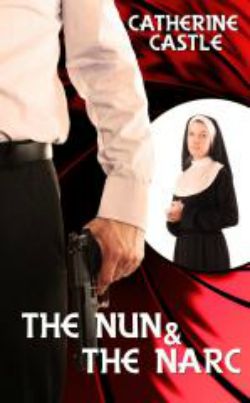It is perfectly okay to write garbage–as long as you edit brilliantly
—C. J. Cherryh
For most writers editing is the part we hate. When we first begin writing, we believe each word is golden and we don’t want to give a single one up. But in order to move forward, we have to see that we often do write garbage. Our sentences are full of weasel words, repetition, missing words, dangling modifiers and all kinds of grammar problems that keep our work from shining.
If you haven’t done so before, when you finish a manuscript hide it under the bed. Walk away from it for a week, a month, or as long as you can spare. Then pull it out and look for these things. You’ll be surprised at how much better you can make your work when you look at it critically.
Here are a few tips I use when editing.
Weasel words—these are words that we insert into our books that can be easily cut and never affect the sentences. Everyone has his or her own set of weasel words. Some I have problems with are too, that, well, so, and, just, but, very. Find yours and keep a list.
Dangling modifiers—a dangling modifier is a phrase or word that is in the wrong place and modifies the wrong thing.
- Is that a new blouse? Yes. I found it walking through Walmart (You were walking through Walmart, not the blouse.)
- Hi, my name is Barb from Cincinnati. (Barb from Cincinnati? That’s an odd name.)
Words that are words but don’t fit in your sentence. I once wrote an article for the newspaper and inserted one of these beauties (not that I haven’t done it more than once in other writings as well). The sentence was supposed to read “He rides around the store on a silver motor-powered scooter.” Instead, I wrote “He rides around the store on a sliver motor-powered scooter.” Same letters in different order with a big difference in meaning. Thankfully, I caught it before it went to press!
Cliches—I LOVE clichés. They’re part of our ordinary language and can relate so much in so few words. Editors, however, aren’t fond of clichés. How do we authors beat this problem? One way it to use create phrases to use in place of clichés by using fresh similes and metaphors. One of the best pieces of advice I ever heard on this was to use things that relate to your story or your heroine’s/hero’s experiences to create fresh phrases. For example, if you are writing a paranormal story, use paranormal words such as “She’s like a mermaid out of water” instead of “a fish out of water.” When you take an overused cliché and turn it on its ear this way, your writing is not only fresh, but more relatable to your character’s experience.
Do you have “garbage” writing you must edit out? I’d love to hear about it.
About the Author:
Award winning author Catherine Castle has been writing all her life. Before beginning her career as a romance writer she worked part-time as a freelance writer. She has over 600 articles and photographs to her credit, under her real name, in the Christian and secular market. Besides writing, Catherine loves traveling with her husband, singing, and attending theatre. In the winter she loves to quilt and has a lot of UFOs (unfinished objects) in her sewing case. In the summer her favorite place to be is in her garden. She’s passionate about gardening and even won a “Best Hillside Garden” award from the local gardening club.
Her debut inspiration romantic suspense, The Nun and the Narc, from Soul Mate Publishing is a 2014 Beverly Hills Book Award Winner, a 2014 RONE winner, a 2014 EPIC finalist, a 2014 RONE finalist and a Carolyn Readers Choice Award finalist and an ACFW Genesis Finalist.
You can connect with her at her blog, on FB, Goodreads or Twitter.
Catherine also guest posts at: Stitches Thru Time and SMP Authors blog
Her award-winning book The Nun and the Narc is available through Amazon and Barnes and Noble
About The Nun and the Narc
Where novice Sister Margaret Mary goes, trouble follows. When she barges into a drug deal the local Mexican drug lord captures her. To escape she must depend on undercover DEA agent Jed Bond. Jed’s attitude toward her is exasperating, but when she finds herself inexplicable attracted to him he becomes more dangerous than the men who have captured them, because he is making her doubt her decision to take her final vows. Escape back to the nunnery is imperative, but life at the convent, if she can still take her final vows, will never be the same.
Nuns shouldn’t look, talk, act, or kiss like Sister Margaret Mary O’Connor—at least that’s what Jed Bond thinks. She hampers his escape plans with her compulsiveness and compassion and in the process makes Jed question his own beliefs. After years of walling up his emotions in an attempt to become the best agent possible, Sister Margaret is crumbling Jed’s defenses and opening his heart. To lure her away from the church would be unforgivable—to lose her unbearable.
You can purchase The Nun and the Narc on Amazon or Barnes and Noble


Thanks for hosting me today!
Hi, Preslaysa,
I tried to leave a comment via my smart phone, but apparently it’s not smart enough, since I don’t see the comment here. Anyway, thanks for hosting me today.
Loved ur post. And ur right, we hate to cut any words or in my case, a WHOLE chapter. (It pulled the story into snail mode). But that’s why we have editors. To help us catch the stuff we miss. However, like u said, if we can walk away from it for a bit then come back to it, it would help w the ‘garbage’. Great post!
Cutting scenes that don’t move the story forward is good advice, too. Thanks for coming by.
Loved that advice about twisting the cliches to suit the story. Thanks Catherine, I’ll give it a try.
I’ve done that with a couple of books and it’s fun. Thanks for visiting me today.